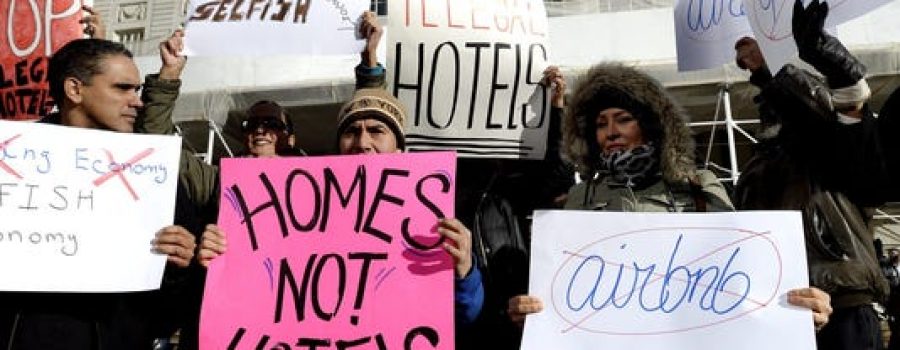Is the short-term rental craze over for Boston homeowners?
2 years ago, it was not unusual to come across stories about the short term rental (STR) niche in the investor community. To some, it was the perfect investment vehicle that commanded higher rental values without the hassle of hospitality tax and regulations. Aside from the occasional nightmare patrons, bed bugs, and bad AirBnB reviews, STR remains popular and largely profitable.
A local AirBnb operator/friend once mentioned that her mediocre 2-bedroom condominium in Brighton was grossing $60,000 with an annual cash flow just over $20,000. Her family owns 4 of such rentals with aspiration for more. That is until the recent development of the Short Term Rental Laws in the Commonwealth.
First off, it is still legal and may still be profitable to own and operate a short term rental unit. The key is to plan ahead and understand the new terms (which can be convoluted). It essentially boils down to 4 major components:
One – Registration
Starting July 1 2019, all short term rental units must be registered with the State. Some towns and cities may also require additional registration such as Boston (registration here). There is a nominal fee associated with these annual registration (ex. In boston, there is a $25 registration fee per unit) but it’s not exorbitant.
Two – Taxation
In true Taxachusetts fashion, the new STR law will tag on up to almost 12% of hospitality taxes depending the town/cities. For the aforementioned friend, she will see her earnings dropped by almost $7,500 from local and state taxes alone. Some towns may have additional community improvement and environmental preservation taxes (particularly down at the Cape). For many STR operators, this may be enough to discourage them all together!
Three – Insurance
We’ve all heard of nightmare Airbnb tenants who destroyed your furnitures, stole your TV, burned down the house, or simply won’t leave the unit. That’s why I was astonished to learned that many of Boston area STR owners/operators rarely have updated their insurance policies to cover these potential damages. Well, this new STR law mandates that owners purchase STR liability coverage up to $1 million per unit.
Four – Inspection
Some cities and towns may require a periodic inspection of the STR unit. Again, frequency and extent of the inspection may vary but it’s likely that the owners will cover such expenses for the city/town as well.
In short, the new law is designed to discourage STR growth, particularly in traditionally dense residential areas. There are some exceptions to the law. For instance, if you’re renting your unit out for less than 14 days each calendar year, then the unit is exempt from the new STR regulations. If you are or contemplating on becoming an STR operator, obviously take these additional regulations and expenses into consideration and plan accordingly!
Reference: Mass Association of Realtors





